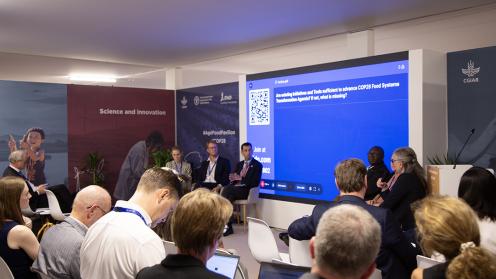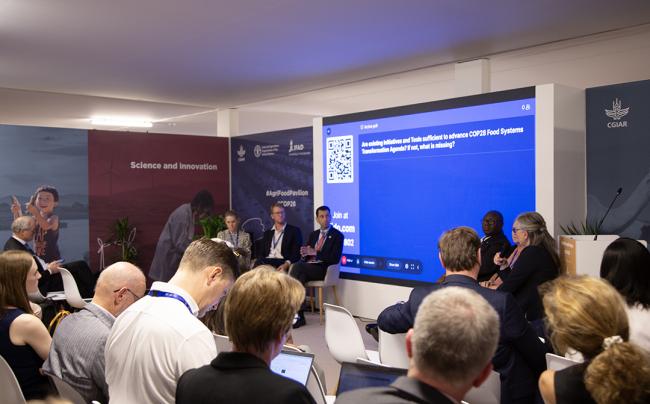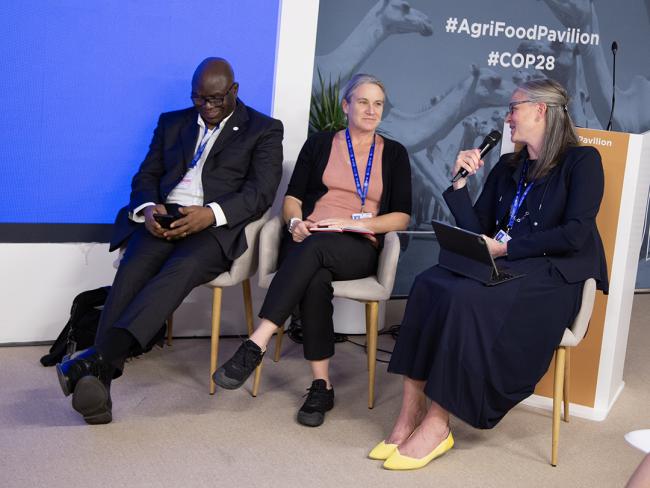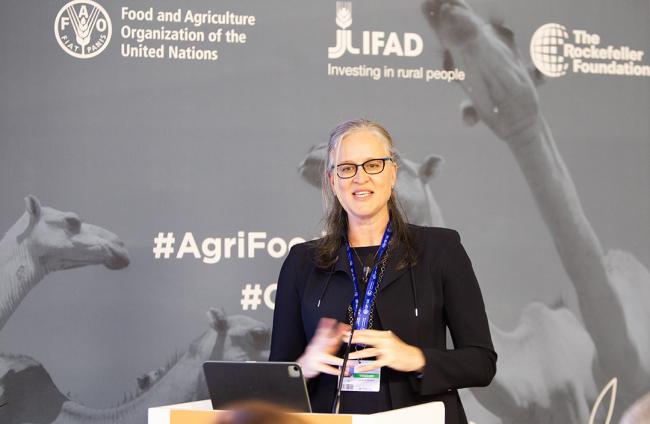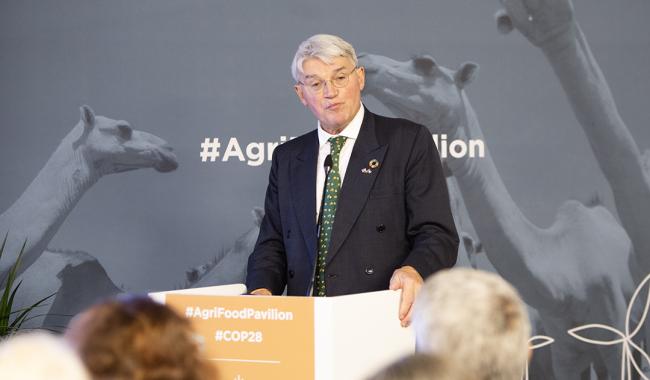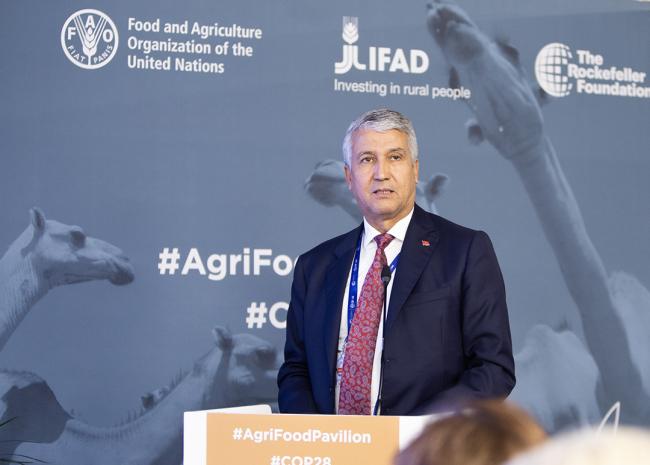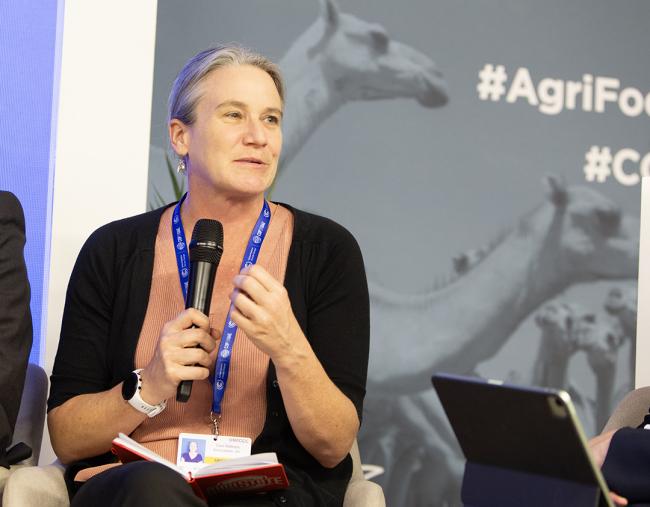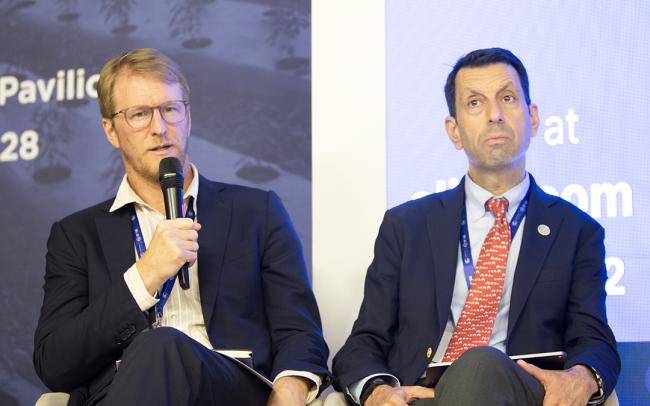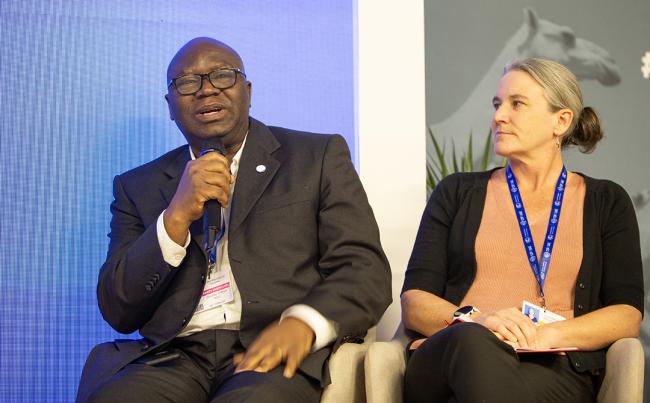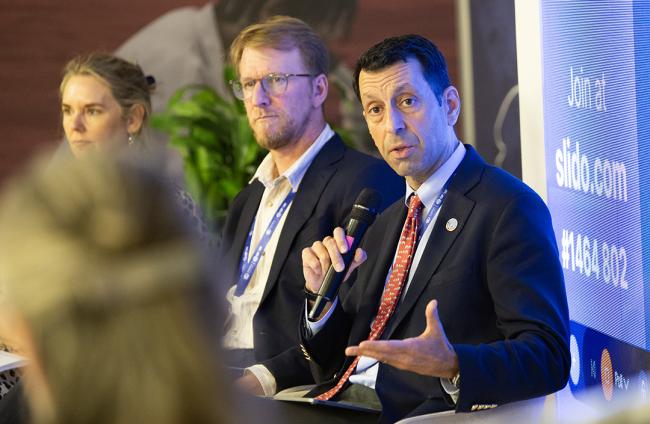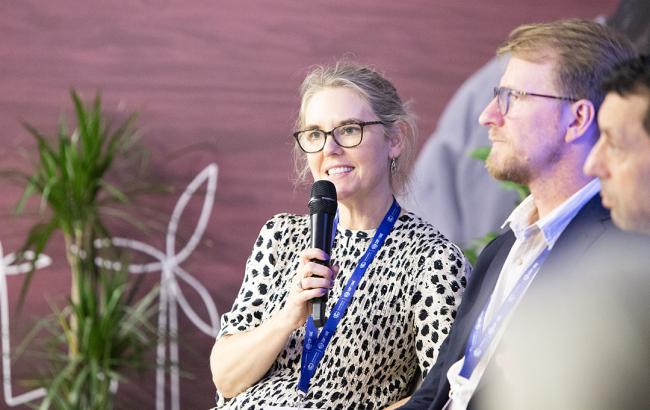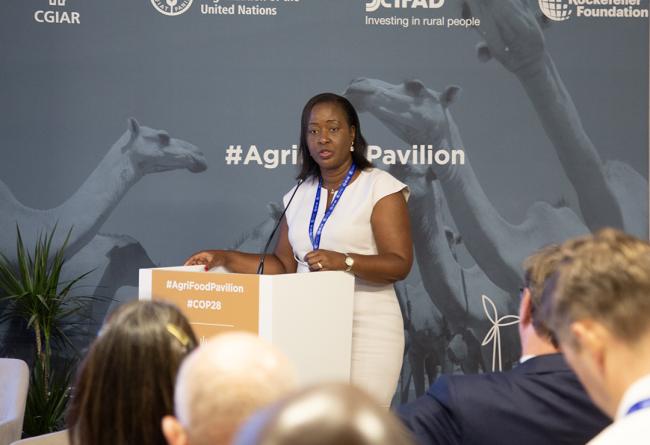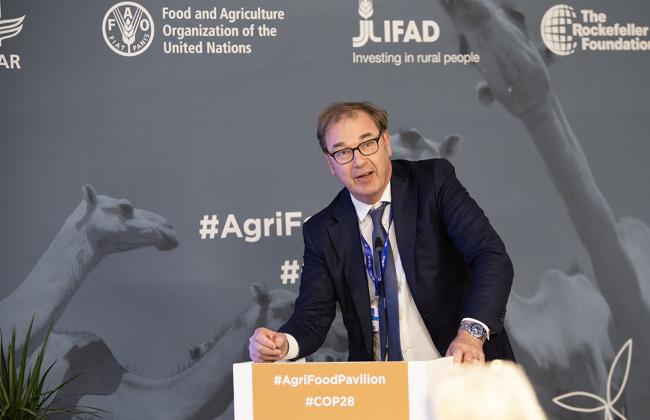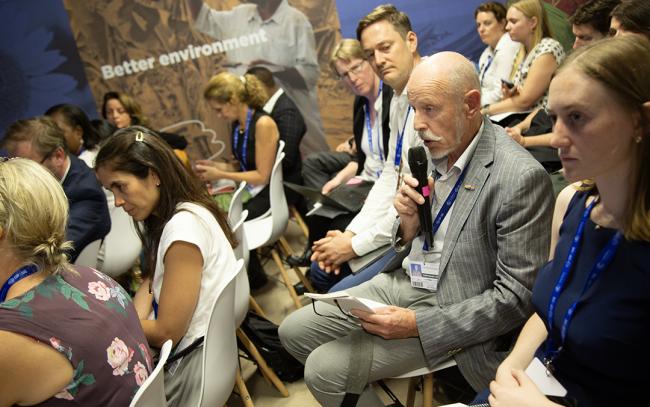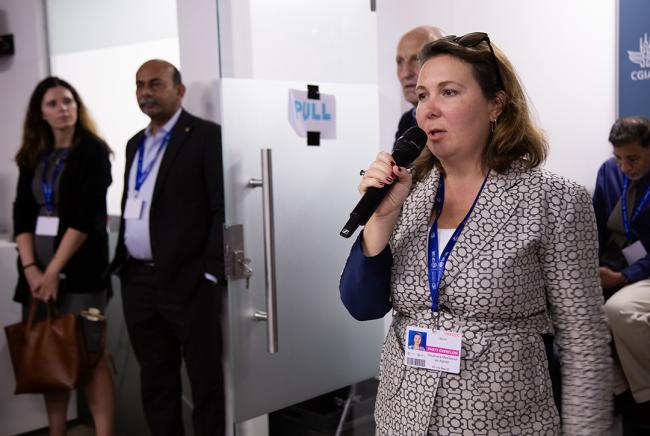Agriculture Breakthrough: From Commitment to Action—How Can Existing Initiatives and Tools Help Advance COP 28 Food Systems Transformation Agenda?
Agriculture and food security have featured prominently on the last three COP agendas, underscoring the need to take action to achieve resilient, sustainable, and equitable food systems that provide affordable, safe, and nutritious food for all.
This event, co-hosted by the CGIAR, the UK Foreign Commonwealth and Development Office (FCDO), and the World Bank Group, builds on achievements of previous COPs, the UN Food Systems Summit, and the Global Food Security Summit to demonstrate some of the key approaches for delivering solutions for more sustainable and resilient agrifood systems. The event focused on the Breakthrough Agenda, a master plan to accelerate decarbonization in, among others, the shift to sustainable agriculture, and the COP 28 UAE Declaration on Sustainable Agriculture, Resilient Food Systems, and Climate Action.
Loraine Ronchi, CGIAR, moderated the event, noting its focus on how existing initiatives and tools will help advance the COP 28 food systems transformation agenda.
Ismahane Elouafi, Executive Managing Director, CGIAR, highlighted that the Agriculture Breakthrough as part of the Breakthrough Agenda aims to make climate resilient sustainable agriculture the most attractive and widely adopted option for farmers everywhere by 2030. She reported that the agriculture chapter of the 2023 Breakthrough Agenda Report provides recommendations for international action and collaboration, and summarized priority actions required for the breakthrough, including: increasing finances for deployment of proven agriculture technologies; sharing knowledge to support faster and more effective uptake of technologies; and development of uniform metrics and indicators to track the adoption of key sustainable agriculture solutions.
Andrew Mitchell, Minister of State for Development and Africa, FCDO, highlighted the 2023 Global Food Security Summit, which focused on addressing the global food security crisis and boosting action against hunger and malnutrition, including through innovations in science and technology. He reported on the UK White Paper titled, International Development in a Contested World: Ending Extreme Poverty and Tackling Climate Change, saying it details ways of contributing to achieving lasting solutions to famine, resilient agrifood systems, and the Sustainable Development Goals. He further highlighted the launch of the new CGIAR UK science center to develop new climate-resilient crops and identify risks to global food systems.
Mohammed Sadiki, Minister of Agriculture, Maritime Fisheries, Rural Development, and Water and Forests, Morocco, highlighted national policies such as the Green Generation 2020-2030 Strategy, which aims to develop and maintain secure food sources and food sovereignty. He recalled the launch of the Adaptation of African Agriculture initiative at COP 22 in Morocco aimed at reducing vulnerability of African states, and discussed progress in supporting African countries to develop climate smart agriculture plans. He highlighted Morocco’s plans to replant thousands of hectares of cactus to boost multifunctional agricultural production, and reported on employment of digital agriculture practices to promote governance and good practices in the sector.
Aditi Mukherji, CGIAR, in a virtual presentation, discussed key findings and recommendations from the agriculture chapter of the Breakthrough Report. She noted that the report adheres to four main principles, namely: sustainable increases in agriculture productivity and incomes; reduced emissions from the agrifood sector; improved soil, water resources, and natural ecosystems; and improved adaptation and resilience to climate change. She further highlighted the seven agriculture Breakthrough technologies for sustainable agriculture: reduced emissions from fertilizers; alternative proteins; reduced food loss and waste; crop and livestock breeding; reduced methane emissions from livestock; agro-ecological approaches; and digital services in agriculture.
The panel discussion focused on initiatives and tools to advance the COP 28 Food Systems Transformation Agenda. Allison Thomson, Efficient Fertiliser Consortium, discussed the potential of alternative fertilizers to improve sustainability while increasing productivity. She reported challenges in uptake and acceleration of novel fertilizers due to inadequate data on the right levels of fertilizer required in different international contexts.The Breakthrough commitment, she noted, is an opportunity to build a multistakeholder coalition to evaluate the fertilizers used in these different contexts and provide data required to promote context-specific solutions. She highlighted the need for standard protocols for fertilizer use.
Hayden Montgomery, Global Methane Hub, discussed ways in which the Hub is dealing with translating research on methane into action. He underscored the need to catalyze coordinated research on methane emissions, pointing to the Measurement, Reporting and Verification of Methane framework as a key tool to enhance transparency and support accounting for emissions and emission reductions.
Oluyede Ajayi, Global Center on Adaptation, highlighted the use of digital services for transformation of agrifood systems for small-scale farmers. He underscored that several agrifood system solutions do not reach farmers due to a disconnect between the “science of discovery and science of delivery.” He reported investments in projects to share, with farmers, information on climate risks and projects with the International Fund for Agricultural Development (IFAD) to support rural small-scale farmers develop resilience to climate change.
Kaveh Zahedi, FAO, discussed the need for climate finance targeted towards scaling climate supportive technologies and approaches. He emphasized the need to ensure that financing focuses on adaptation of rural agrifood systems. He highlighted FAO’s support to countries to develop projects with Green Climate Fund and Global Environment Facility funding, which in turn triggers co-investments from the private sector. He noted the need to ensure that each COP builds on successes of previous COPs in order to ensure connectivity and continuity of actions.
Melissa Pinfield, Executive Director, Just Rural Transition, focused on how to ensure resilient livelihoods and just and equitable transformation. She underscored that just transition is better understood in the energy sector than agriculture. She reported her organization’s development of a report on Principles for Just Food System Transitions, which explores the implications of ten guiding principles for achieving just food system transitions, in terms of desired outcomes, planning and decision-making processes, systemic changes that may be needed, and tensions that must be managed.
In closing remarks, Betty Chinyamunyamu, CEO, National Smallholder Farmers' Association of Malawi, said farmers are confused by the high turnover of terminologies and technologies introduced to them, noting the need to ensure their involvement based on their knowledge, experience, and expertise to enrich the development of solutions.
Martien van Nieuwkoop, World Bank Group, reported on the Bank’s involvement in the Africa Agricultural Policy Leadership Dialogue held in Lusaka in 2023, which focused on African agrifood policy actions. He concluded by saying that the Bank is committed to support implementation of the COP 28 Declaration to build momentum for agrifood systems.
To receive free coverage of global environmental events delivered to your inbox, subscribe to the ENB Update newsletter.
All ENB photos are free to use with attribution. For this COP 28 side event, please use: Photo by IISD/ENB | Angeles Estrada Vigil
